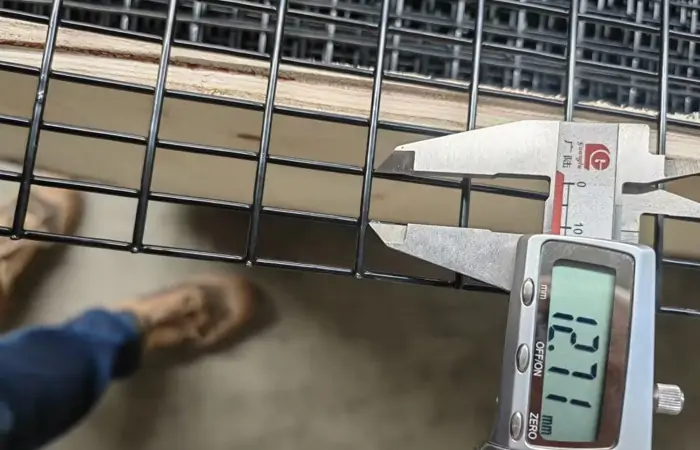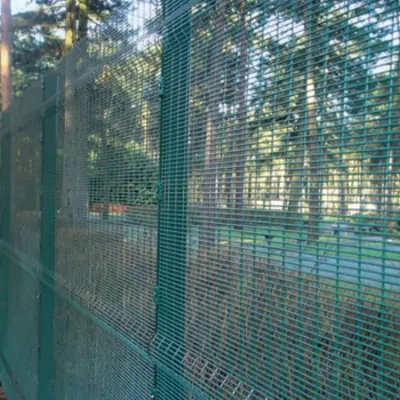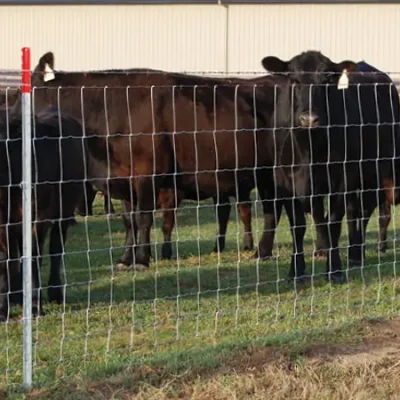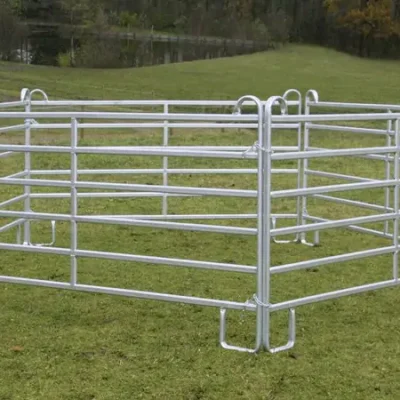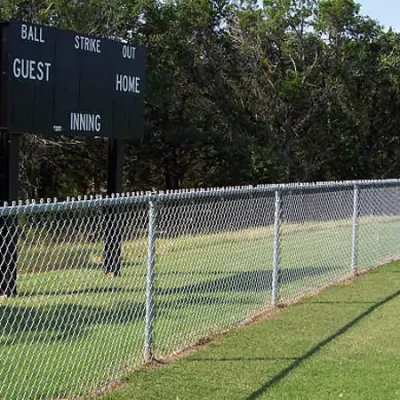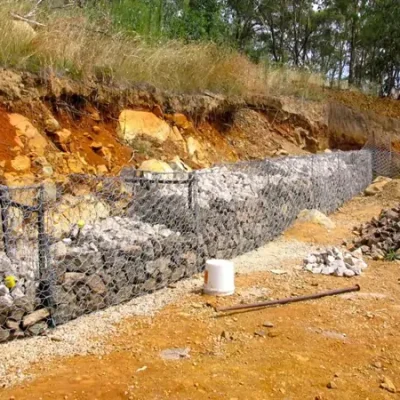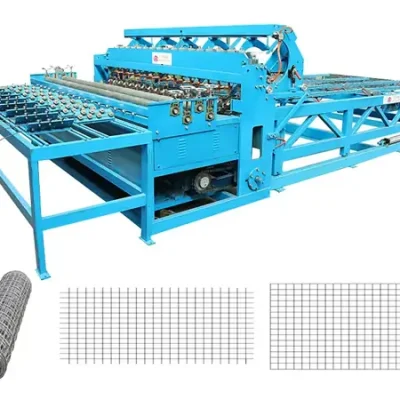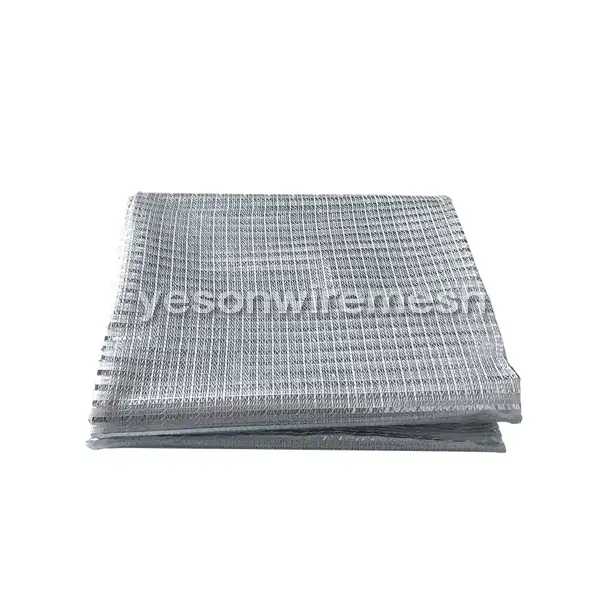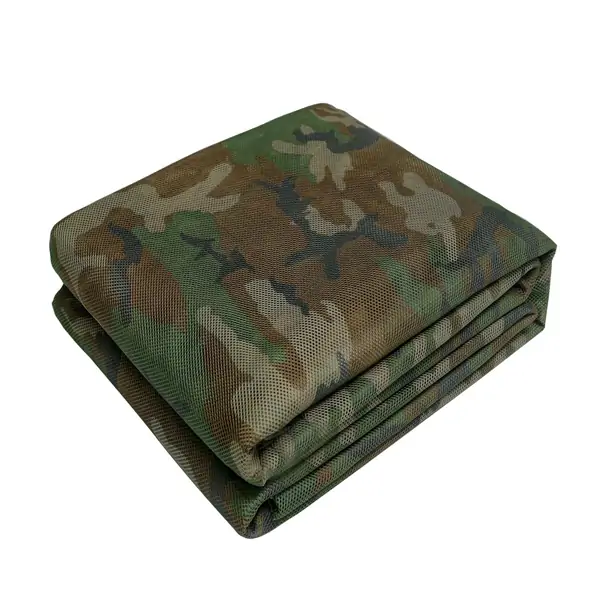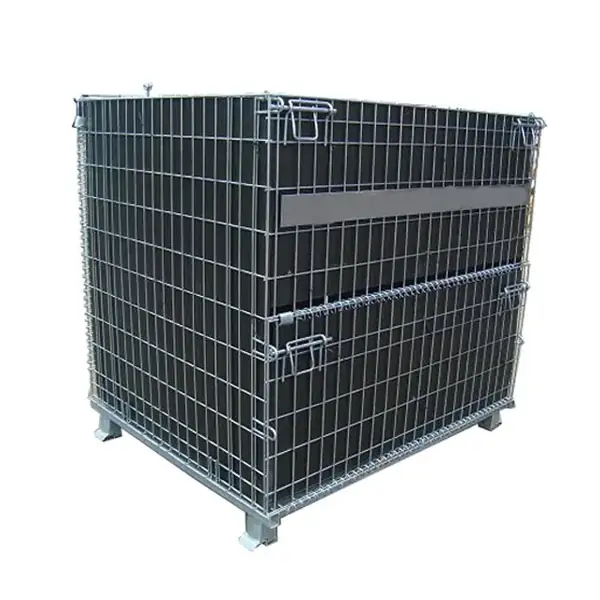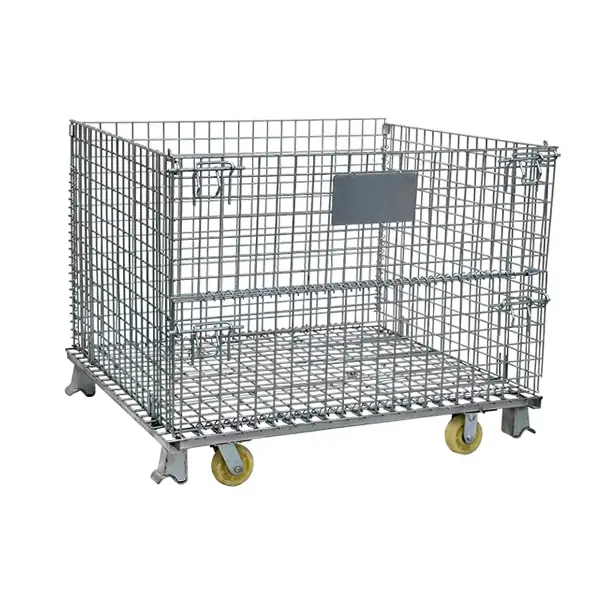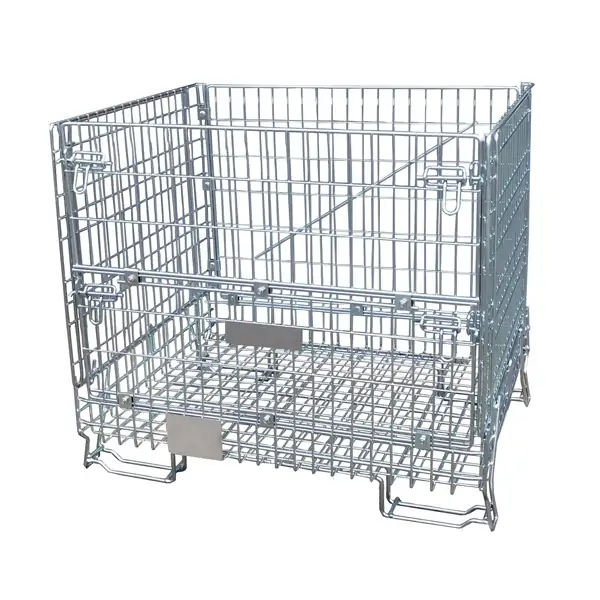Epoxy coated welded wire mesh plays an important role in architecture and design. This guide educates potential buyers on the benefits of epoxy coated welded wire mesh, its applications, and key factors to consider when purchasing. Whether you are a building professional, architect, or DIY enthusiast, understanding the properties of this material will enable you to select the right type of mesh for your specific needs.
Table of Contents
ToggleI. Introduction
Definition of Epoxy Coated Welded Wire Mesh
Epoxy-coated welded wire mesh is crafted by welding wires at right angles and then applying a protective epoxy coating. This coating enhances the mesh’s structural integrity and resistance to corrosion. The epoxy layer acts as a shield against environmental factors like moisture, chemicals, and physical wear, ensuring the mesh remains durable and extends its lifespan. This makes it an excellent choice for various applications where strength and longevity are essential.
II. Understanding Welded Wire Mesh
Basic Concepts
Welded wire mesh consists of steel wires joined together at intersection points to form a grid. The mesh is typically made from mild steel or stainless steel and is available in a variety of thicknesses to suit a variety of structural needs.
Welded vs. Woven Wire Mesh: Unlike woven wire mesh, where wires are interlaced, welded wire mesh has a more robust construction due to the welding process. This makes it less prone to unraveling and provides superior load-bearing capacity.
Applications of Welded Wire Mesh
- Construction:Reinforcing concrete slabs, walls, and structures to provide stability and strength.
- Agriculture:Fencing for livestock, crop protection, and equipment storage.
- Industrial:Security barriers, machinery guards, and partitioning.
- Residential:Decorative panels, trellises, and pet enclosures.
III. Epoxy Coating: An Overview
What is Epoxy Coating?
Epoxy coating is a polymer-based layer that forms a tough, resilient surface when applied to various materials. Renowned for its strong adhesion, it provides excellent resistance to moisture, chemicals, and abrasion. Available in a variety of colors and finishes, epoxy coatings can be customized to suit both aesthetic preferences and functional requirements.
Benefits of Epoxy Coating
- Corrosion Resistance:The coating acts as a protective layer that prevents rust and degradation, especially in harsh environments.
- Durability:With increased resistance to impact and wear, epoxy coatings extend the lifespan of the welded wire mesh.
- Aesthetic Appeal:Available in different colors and finishes, epoxy coatings can enhance the appearance of the wire mesh, making it suitable for decorative purposes.
- Environmental Protection:Epoxy coatings can withstand exposure to chemicals, UV radiation, and temperature fluctuations, ensuring reliable performance in various settings.
IV. Types of Epoxy Coated Welded Wire Mesh
Different Types and Variations
Epoxy coated welded wire mesh comes in numerous configurations, catering to specific needs:
- Wire Thickness:From light-gauge wires for decorative uses to heavy-duty wires for structural applications.
- Mesh Size:The size of the openings can vary, influencing the mesh’s strength and transparency.
- Coating Thickness:Different levels of coating thickness provide varying degrees of protection and durability.
Specialty Meshes
Specialty meshes are designed for unique applications requiring specific characteristics:
- Galvanized Mesh with Epoxy Coating:Combines the benefits of galvanization and epoxy coating for ultimate corrosion protection.
- Colored Epoxy Coatings:Available in custom colors for branding or design purposes.
- Anti-Climb Mesh:Features tighter spacing to deter climbing and enhance security.
V. Key Factors to Consider When Buying
Purpose and Application
Understanding the intended use of the mesh is crucial in selecting the right product. Consider factors such as load-bearing requirements, environmental exposure, and specific functionalities needed for your project.
Quality and Standards
When purchasing epoxy coated welded wire mesh, ensure it meets relevant industry standards and certifications, such as ASTM or ISO. These standards guarantee the material’s quality, strength, and performance, ensuring it meets the required specifications for your application.
Durability and Environmental Conditions
Assess the environmental conditions where the mesh will be used. Consider factors such as exposure to moisture, chemicals, UV rays, and temperature fluctuations. Choosing a mesh with the appropriate coating thickness and material composition will ensure optimal performance in challenging environments.
Cost and Budget Considerations
While epoxy coated welded wire mesh offers numerous benefits, it is essential to balance your budget with the required features. Consider the long-term cost savings from reduced maintenance and increased lifespan, which can offset the initial investment.
VI. Choosing the Right Supplier
Evaluating Suppliers
Choosing a reliable supplier is essential for acquiring top-quality epoxy-coated welded wire mesh. When evaluating potential suppliers, consider the following factors:
- Industry Experience: Prioritize suppliers with a long-standing presence and proven success in the industry.
- Reputation: Assess the supplier’s credibility by reviewing customer feedback, testimonials, and references.
- Product Variety: Ensure the supplier offers a wide range of mesh types and customization options to suit your specific requirements.
- Certifications: Confirm that the supplier complies with industry standards and possesses the necessary certifications.
Sample Testing and Quality Assurance
Prior to making a purchase, it’s wise to request samples from prospective suppliers to directly assess the quality and functionality of their mesh products. Thoroughly test these samples to verify that they meet your specific standards and requirements. Additionally, discuss the supplier’s quality assurance measures, including their inspection routines and any warranty policies they offer.
VII. Installation and Maintenance Tips
Proper Installation Techniques
Proper installation is vital to maximizing the performance and longevity of epoxy coated welded wire mesh. Follow these steps for a successful installation:
- Prepare the Surface:Ensure the installation surface is clean, dry, and free from debris.
- Measure and Cut:Accurately measure and cut the mesh to fit the desired area.
- Fasten Securely:Use appropriate fasteners or ties to secure the mesh in place, ensuring even tension and alignment.
- Seal Edges:Apply additional epoxy coating or sealant to exposed edges for added protection.
Maintenance Guidelines
To ensure the longevity and appearance of epoxy-coated welded wire mesh, follow these care tips:
- Keep It Clean:Wash the mesh periodically with gentle soap and water to remove any accumulated dirt or debris.
- Inspect Regularly:Frequently examine the mesh for any damage or signs of corrosion, and take immediate action if any issues are found.
- Maintain the Coating:If the epoxy coating shows signs of wear, consider applying a new layer or using touch-up paint on affected areas.
- Use Mild Cleaners:Avoid abrasive products or harsh chemicals that could potentially damage the epoxy coating.
VIII. Case Studies and Real-World Examples
Successful Implementations
Explore real-world examples of how epoxy coated welded wire mesh has been successfully implemented in various industries:
- Construction:Used in reinforced concrete structures to enhance durability and prevent corrosion, such as bridges, tunnels, and buildings.
- Agriculture:Applied in livestock enclosures, crop protection, and equipment storage, providing a reliable barrier against environmental factors.
- Industrial:Utilized as security barriers, machinery guards, and partitioning in factories, warehouses, and manufacturing facilities.
- Residential:Employed in decorative panels, garden fencing, and pet enclosures, offering both functionality and aesthetic appeal.
Lessons Learned
Gain insights from others’ experiences to avoid common mistakes and make well-informed decisions:
- Choose the Right Material:Selecting an inappropriate mesh type for your specific application can result in early wear and diminished performance.
- Focus on Installation:Proper installation is crucial; overlooking details can weaken the mesh’s structural integrity and effectiveness.
- Prioritize Maintenance:Failing to maintain the mesh regularly can lead to deterioration and potentially expensive repairs down the line.
IX. Frequently Asked Questions (FAQs)
1.What is the lifespan of epoxy-coated welded wire mesh?
The lifespan of epoxy-coated welded wire mesh can vary based on factors like environmental exposure, the thickness of the coating, and how well it is maintained. With proper care, it typically lasts between 10 to 25 years or even longer.
2.Can epoxy-coated welded wire mesh be used outdoors?
Yes, epoxy-coated welded wire mesh is well-suited for outdoor applications because of its strong resistance to corrosion and durability. It is often used in outdoor settings, including fences, gates, and other structures exposed to the elements.
3.What is the best way to clean epoxy-coated welded wire mesh?
For cleaning epoxy-coated welded wire mesh, use a soft cloth or sponge with a mixture of mild soap and water. Avoid abrasive materials and strong chemicals, as they can harm the coating.
4.Can I paint over epoxy coated welded wire mesh?
Yes, you can paint over epoxy coated welded wire mesh, but ensure the surface is clean and dry before applying paint. Use a paint suitable for metal surfaces for the best results.
5.Are there customizable options for epoxy coated welded wire mesh?
Yes, many suppliers offer customizable options for epoxy coated welded wire mesh, including different wire thicknesses, mesh sizes, coating colors, and finishes.
X. Additional Resources
For further information and resources on epoxy coated welded wire mesh, consider exploring the following:
- Industry Standards:Review standards such as ASTM and ISO for guidelines on wire mesh quality and specifications.
- Supplier Directories:Browse directories to find reputable suppliers and manufacturers of epoxy coated welded wire mesh.
- Expert Articles:Read articles and publications from industry experts for insights and advice on selecting and using wire mesh.
- Contact Information:Reach out to suppliers and industry professionals for personalized recommendations and assistance.
XI. Conclusion
This guide provides essential information to help you make well-informed decisions when purchasing epoxy-coated welded wire mesh. Whether you are an experienced professional or new to the process, this resource will assist you in choosing the most suitable mesh for your specific requirements.

